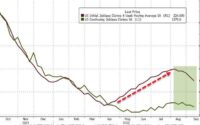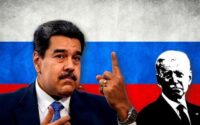Musk restricts Starlink for Ukraine, cites World War III
Elon Musk has a message for whoever might blame him for a third World War erupting over Ukraine: It’s not his fault. In fact, his decision to restrict Ukrainian access to his communications technology—he’s disabling satellite broadband use for any potential strikes on Russian soil—could help prevent the conflict from spiraling out of control. If you ask him, that is.
The serial entrepreneur has become a vital player in Ukraine’s defense thanks to his Starlink service, which has enabled communications for its soldiers all the way up to the front lines since last March. But Musk has complained about the cost of this pro bono technology, at one point tweeting that the cost to his company SpaceX would exceed $100 million by the end of the year. Briefly, he even floated the idea that U.S. taxpayers foot the bill, before dropping the idea.
On Sunday, Musk didn’t cite any objections over any financial hit from providing the coverage. Instead, he argued that restricting Kyiv’s communications will prevent the regional conflict from evolving into something worse.
His specific worry is that his satellite-based broadband provider could be used to mount long-range drone strikes in Russian territory that might herald a new, more horrific phase of the war. In early December, Kyiv hit two targets hundreds of miles from its border, a politically controversial issue that some argue could transform a war of liberation into an offensive one.
“We will not enable escalation of conflict that may lead to WW3,” he posted on Sunday.
Russia has also threatened to shoot down Musk’s Starlink satellites in low earth orbit, claiming they are a legitimate military target.
The world’s second-richest person has become increasingly concerned about the prospects of a broader conflagration. Musk has echoed warnings of a global nuclear war from longtime associate David Sacks—like himself and Peter Thiel, a member of Silicon Valley’s so-called PayPal mafia.
SpaceX accuses Kyiv of ‘weaponizing’ communications
The CEO of Tesla, SpaceX, and Twitter has taken an active interest in resolving the conflict, which is nearing its one-year anniversary.
In October, shortly before Ukraine liberated the regional capital of Kherson, Musk confided that he had spent an entire night thinking about how to de-escalate tensions where professional diplomats had failed. He even floated a plan that would officially cede Crimea to Russia, which quickly proved unpopular.
Musk’s comment on Sunday came in response to a request from Scott Kelly, a former NASA astronaut and activist supporting Ukraine’s freedom fighters.
“Defense from a genocidal invasion is not an offensive capability. It’s survival,” wrote Kelly, whose twin brother recently defeated a candidate backed by Thiel in Arizona’s Senate race.
Musk dismissed Kelly’s remarks in a tweet, characterizing them as “media & other propaganda.” Two minutes later, the SpaceX CEO expressed his agreement that left-wing activists appeared to be agitating for World War III.
Starlink’s use in the war threatens to become a source of contention between SpaceX and the Ukrainian government. Earlier this month, Musk’s operations chief and number two at the company, Gwynne Shotwell, went so far as to upbraid Kyiv’s use of the satellite broadband service at a conference held in Washington, D.C.
“It was never intended to be weaponized,” she said, adding, “Ukrainians have leveraged it in ways that were unintentional and not part of any agreement.”
Learn how to navigate and strengthen trust in your business with The Trust Factor, a weekly newsletter examining what leaders need to succeed. Sign up here.
[ad_2]
Source link


